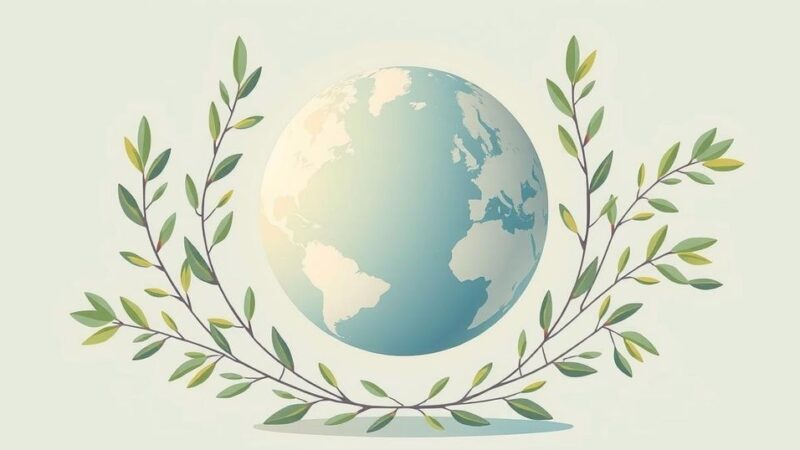Tunisia is set to hold its third presidential election on October 6, 2024, against a backdrop of political repression, economic struggle, and challenges to democracy. Incumbent President Kais Saied is anticipated to face minimal opposition, having consolidated power since 2021. Opposition parties have largely boycotted the election amidst concerns over the legitimacy of the electoral process due to previous political arrests and exclusion of challengers.
Tunisia prepares for its third presidential election on October 6, 2024, following the Arab Spring protests that significantly shaped its political landscape. Amidst major opponents being imprisoned or absent from the ballots, incumbent President Kais Saied is expected to face minimal resistance in his bid for reelection. This election also marks a critical moment for Tunisia, historically viewed as a beacon of democratic progress after the 2011 ousting of longtime leader Zine El Abidine Ben Ali, the first of many Arab leaders to fall during uprisings across the region. During Saied’s tenure, which began in 2019, he garnered initial support by promising a revitalized political climate focused on youth empowerment and local governance. However, his subsequent unorthodox consolidation of power—marked by the suspension of parliament and amendments to the constitution—has resulted in widespread criticism from civil society, opposition parties, and pro-democracy advocates who consider these actions a coup against Tunisia’s nascent democracy. Recent years have seen increased political arrests targeting critics, including journalists and opposition figures, raising substantive doubts about the fairness of the electoral process. Now facing economic challenges, highlighted by rising unemployment rates and a stagnant growth trajectory, the election will reveal public sentiment towards Saied’s controversial governance. Against this backdrop, the election authority has faced scrutiny for disenfranchising various political challengers, which has led to a boycott amongst opposition groups who reject the current electoral framework as illegitimate. Candidates include Saied himself and others like Zouhair Maghzaoui, who opposes Saied’s policies yet has been criticized for supporting his administrative reforms. Ayachi Zammel, a businessman, also runs despite legal troubles related to his campaign activities. Foreign relations under Saied remain complex, as Tunisia seeks to balance its ties with Western allies while forging new partnerships with countries such as Iran and engaging with China’s Belt and Road Initiative for economic aid. The local socio-political climate reflects a nation grappling with identity amidst pressing economic difficulties and significant migration issues, further complicated by Saied’s controversial commentary on migrants. This upcoming election will be critical not only for Tunisia’s internal political dynamics but also for its international positioning and approach to national sovereignty and economic strategies.
This article discusses the imminent presidential election in Tunisia, set to take place on October 6, 2024, marking the third election since the 2011 Arab Spring. The political context is crucial, as incumbent President Kais Saied faces limited opposition following widespread arrests of dissenters and the exclusion of political challengers. His administration’s controversial actions to assert control over the political landscape and the subsequent economic challenges faced by the country highlight the complexities of Tunisia’s governance post-Arab Spring. The backdrop of economic difficulties, a declining democratic trajectory, and rising political apathy among voters underlines the stakes involved in this election, illuminating broader regional implications for governance and civil liberties.
In conclusion, Tunisia’s upcoming presidential election represents a significant juncture in the country’s evolving political landscape. President Kais Saied’s tenure has faced criticism for authoritarian tendencies and economic mismanagement, yet he maintains a loyal supporter base. The exclusion of prominent opposition figures and calls for a boycott raise important questions about the legitimacy of the electoral process. As Tunisia aims to navigate its political and economic challenges, the outcome of this election will be pivotal not only for the future governance of the nation but also for its international relationships and standing.
Original Source: apnews.com





